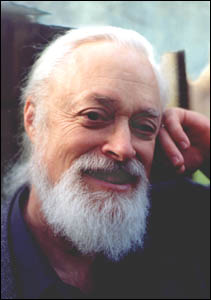
What this message is about: A good description of “the public” as a collective entity potentially able to think and respond as a whole.
“The Public” is way deeper than “public opinion”
Dear friends,
This remarkable description of systemic problems in the quasi-democracy of the US, and of the proper conception of “the public” and its role are very resonant with my own perspective. It comes from David King of Grassroots Democracy Incorporated in British Columbia, Canada. His note appeared in a discussion forum of the National Coalition for Dialogue and Deliberation. David gave me permission to share it with you.
Coheartedly,
Tom
One of the realities that bedevils voting is that, in an adversarial and two-party system, partisan messages and media comments suggest very limited (bi-polar) choices. People who see nuances, or prefer collaboration, or are seeking a ‘third way', or reject confrontation are actively discouraged from voting. In an adversarial and two-party system, the only (apparently) valid reasons for voting are: (1) to elect the good guy; or, (2) to make sure the bad guy doesn't win. Anything else is described as a wasted vote or worse, an undermining of the ‘strategic' (blocking) vote.
In terms of citizen engagement, we have a problem in that the sense of “the public” is very weak and is being undermined, constantly. The public is not merely an aggregation of individuals, not is it a temporary or specific or instrumental phenomenon, nor is it detached from its surroundings, nor is it a contractual relationship. The public is greater than the sum of its parts. Something transcendent transforms an aggregation of individuals into “the public” in a time and place. The public is enduring, organic, and embedded in its ecology. The public is relational: it is covenantal (for better or for worse, through sickness and in health, until death do us part).
I would argue that both politicians and conventional media have reasons for wanting to dissolve “the public” and replace it with “public opinion”, which is temporary, specific and instrumental, and detached from its surroundings. In the minds of some politicians (and political machines) and in the minds of some editors, it is not helpful that the 67% of the population who support their position on gun control (for example) today should stick together for consideration of another issues (such as health care) tomorrow. They may not espouse the position the politician or editor wants them to espouse. They may discover that they can disagree and remain in right relationship. They may learn ways of coming together that don't involve the politician or the editor. They may discover that issues are complex, inter-related, of enduring significance. They may decide that they want more sophisticated responses than politicians and editors are prepared to give them.
A poll that suggests that X% of the surveyed population holds a certain position in response to a few carefully chosen questions is not a manifestation of “the public”.
In respect of both points, there seem to be three underlying problems. The first is the mis-myth that democracy is ‘finished' — that what we have is as good as it gets. We tend to believe that our Constitution, and our electoral laws and practices represent the best model in every significant respect, and there is nothing left to do except perhaps tinker around the edges. The second is the mis-myth that citizens are consumers of democracy (and government), whose only role is to go into the marketplace from time to time and hire a household manager who will thereafter make all the decisions. The final problem I would mention is that most political problems are not technical problems, so experts are not the best people to deal with them. Most political problems are challenges to our wisdom. Expert knowledge can be very helpful in knowing where we are, but it is not necessarily helpful in knowing what we should do.
~~~~~~~~~~~~~~~~~~~~~~~~~~~~~~
site: http://www.co-intelligence.org / blog: http://tomatleeblog.com
Read Empowering Public Wisdom, The Tao of Democracy and
Reflections on Evolutionary Activism
Please support our work. Your donations are fully tax-deductible in the U.S.



